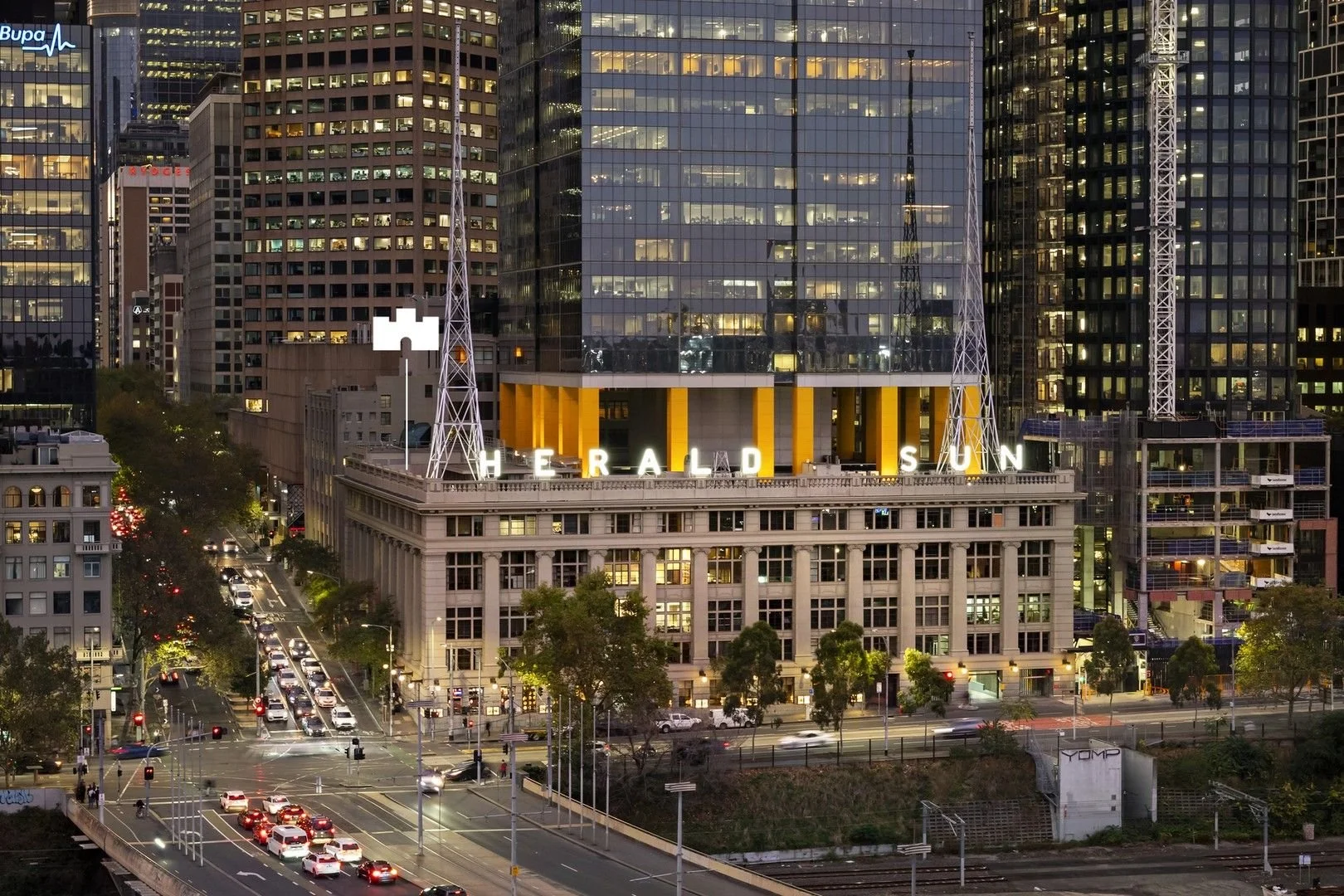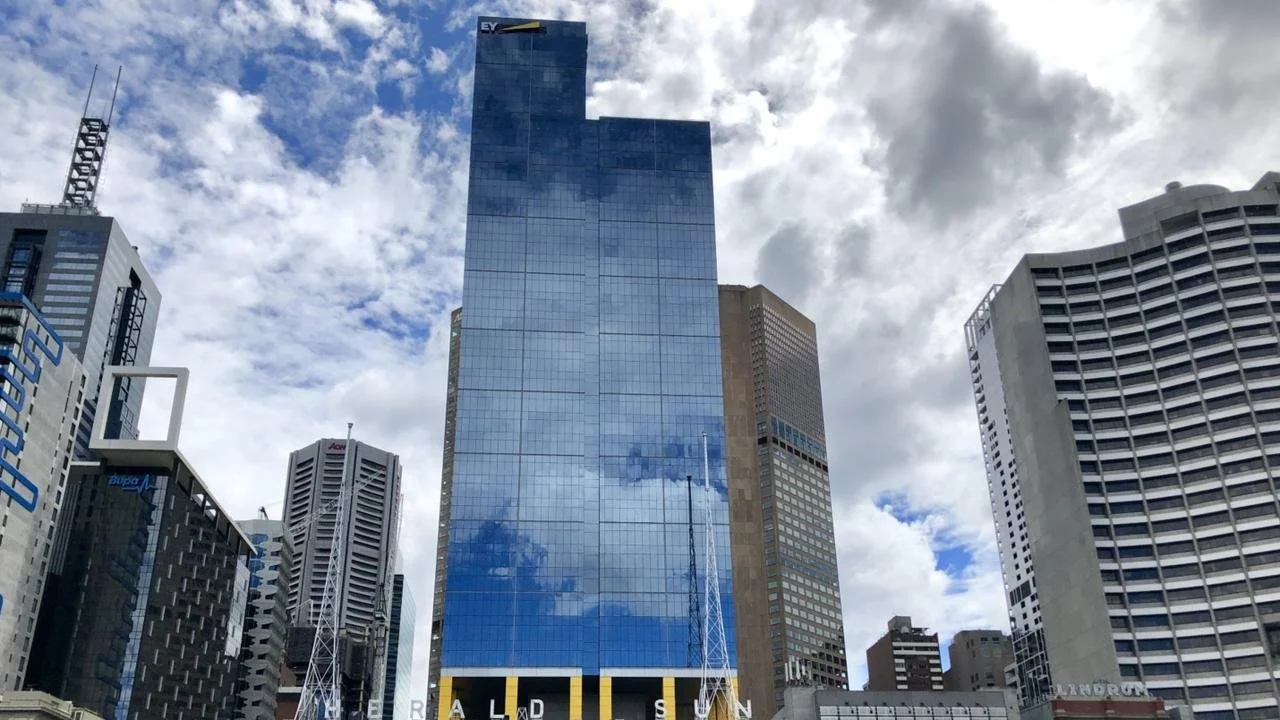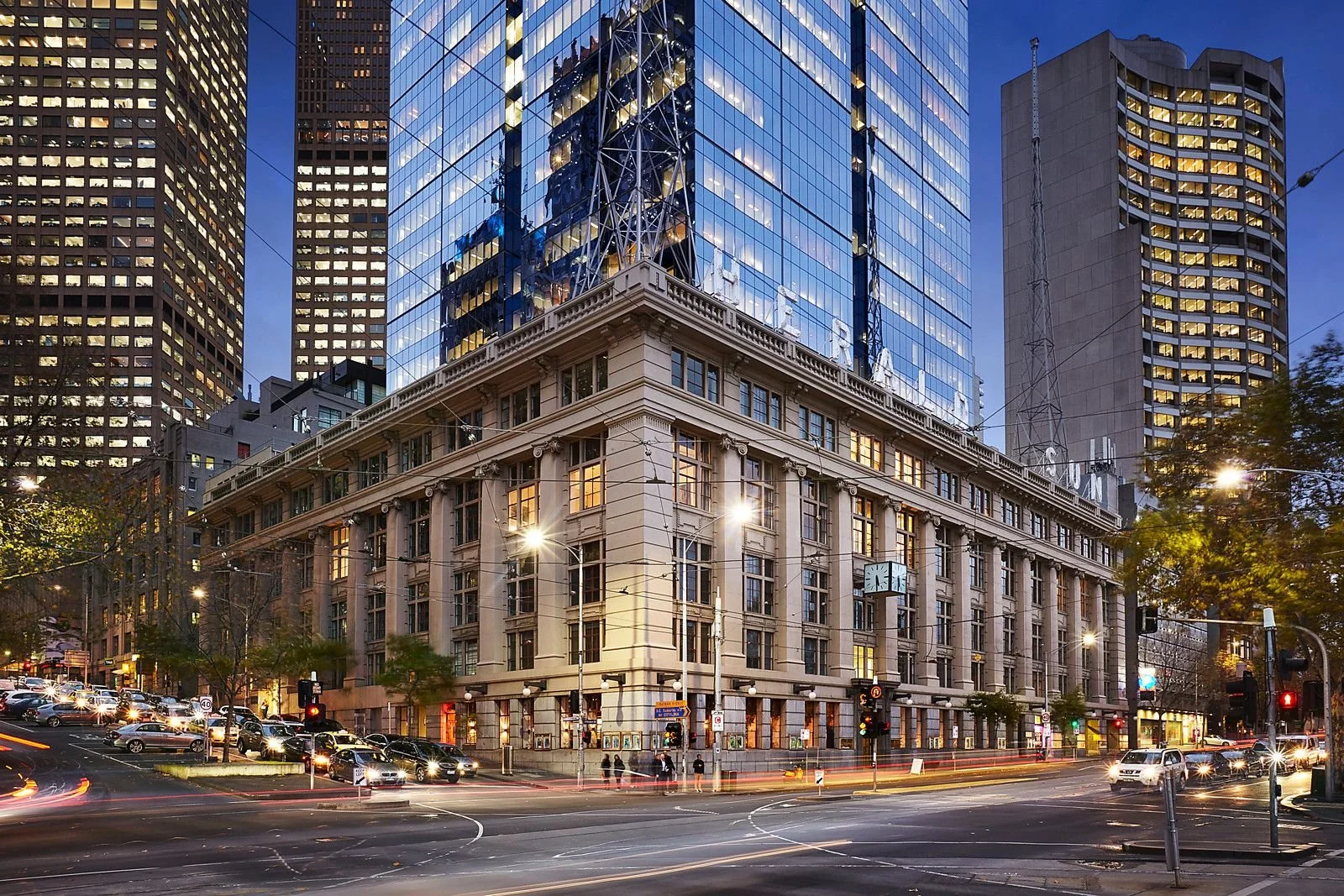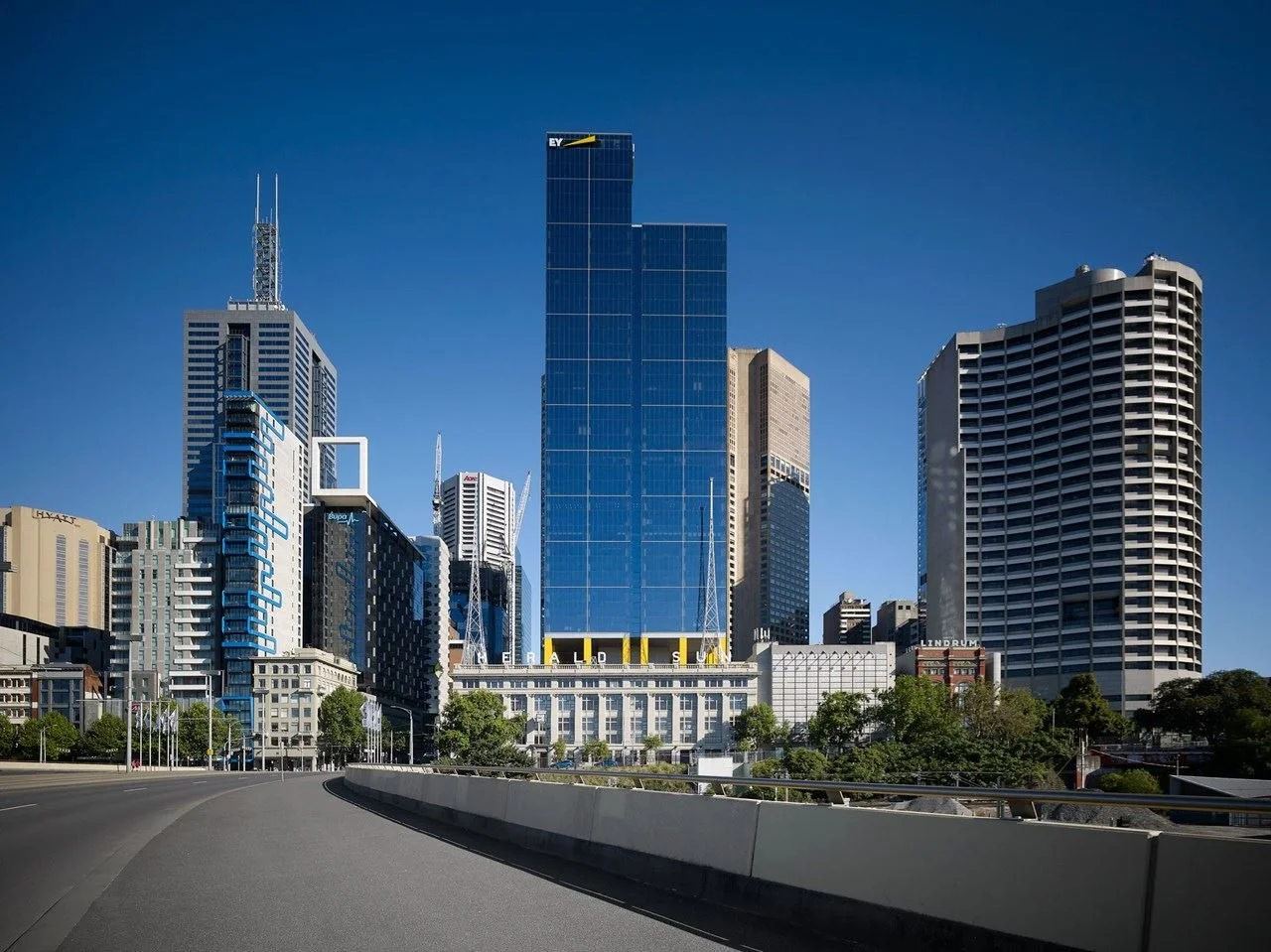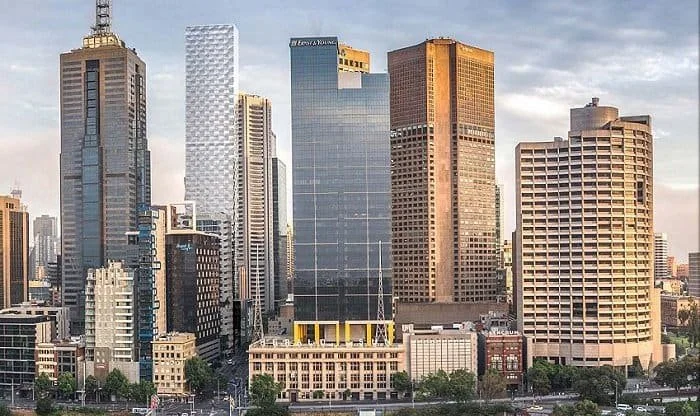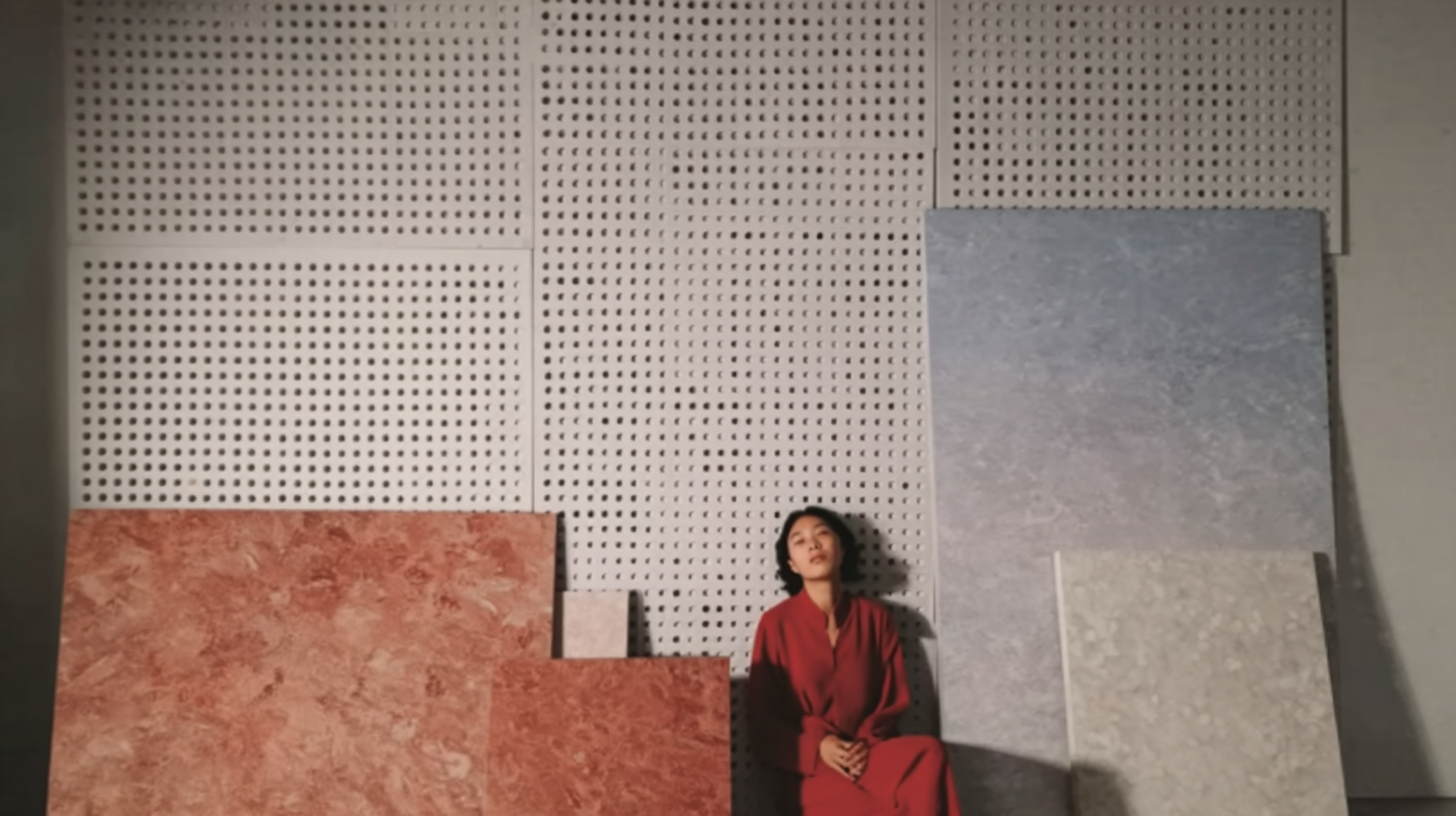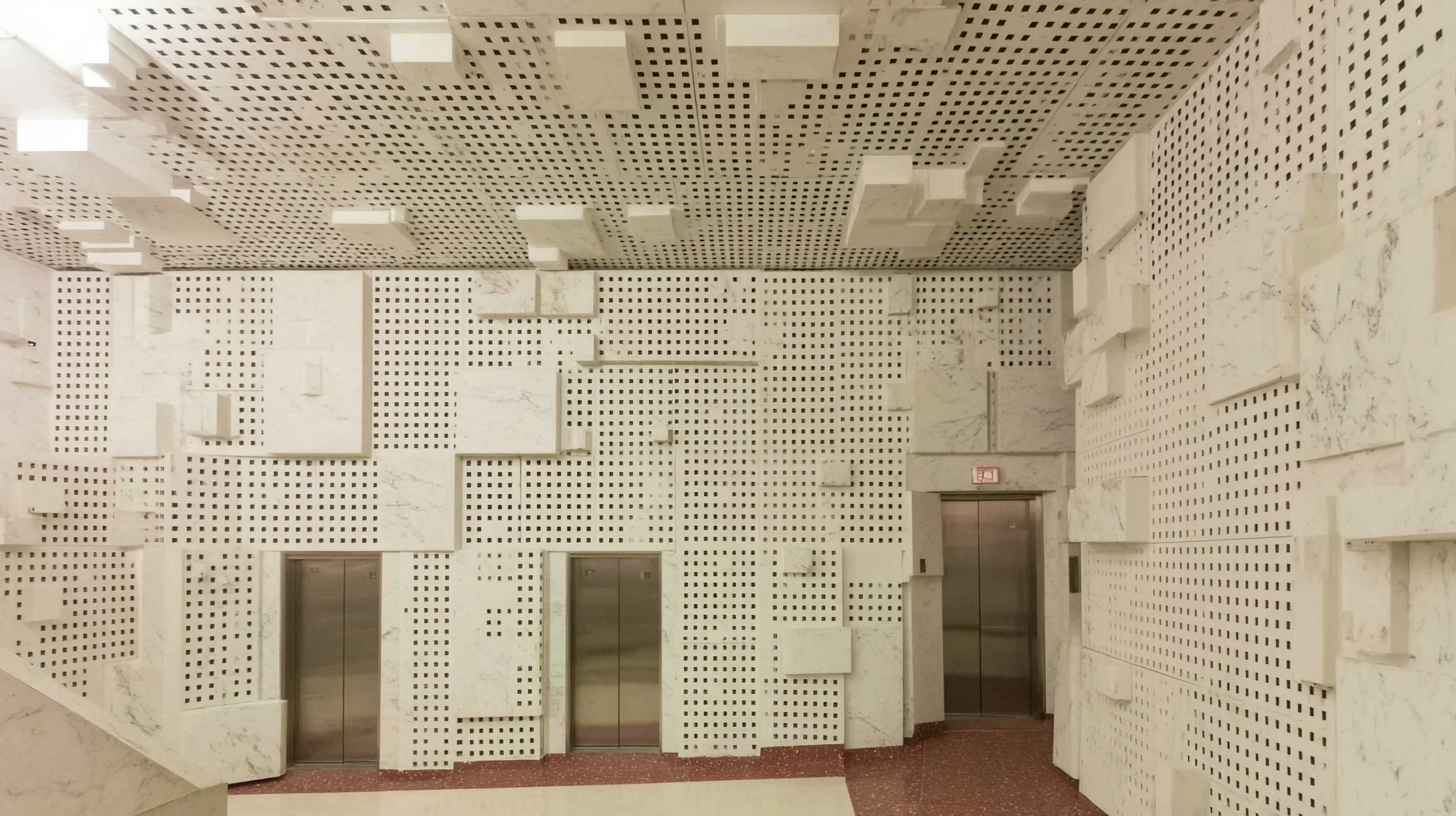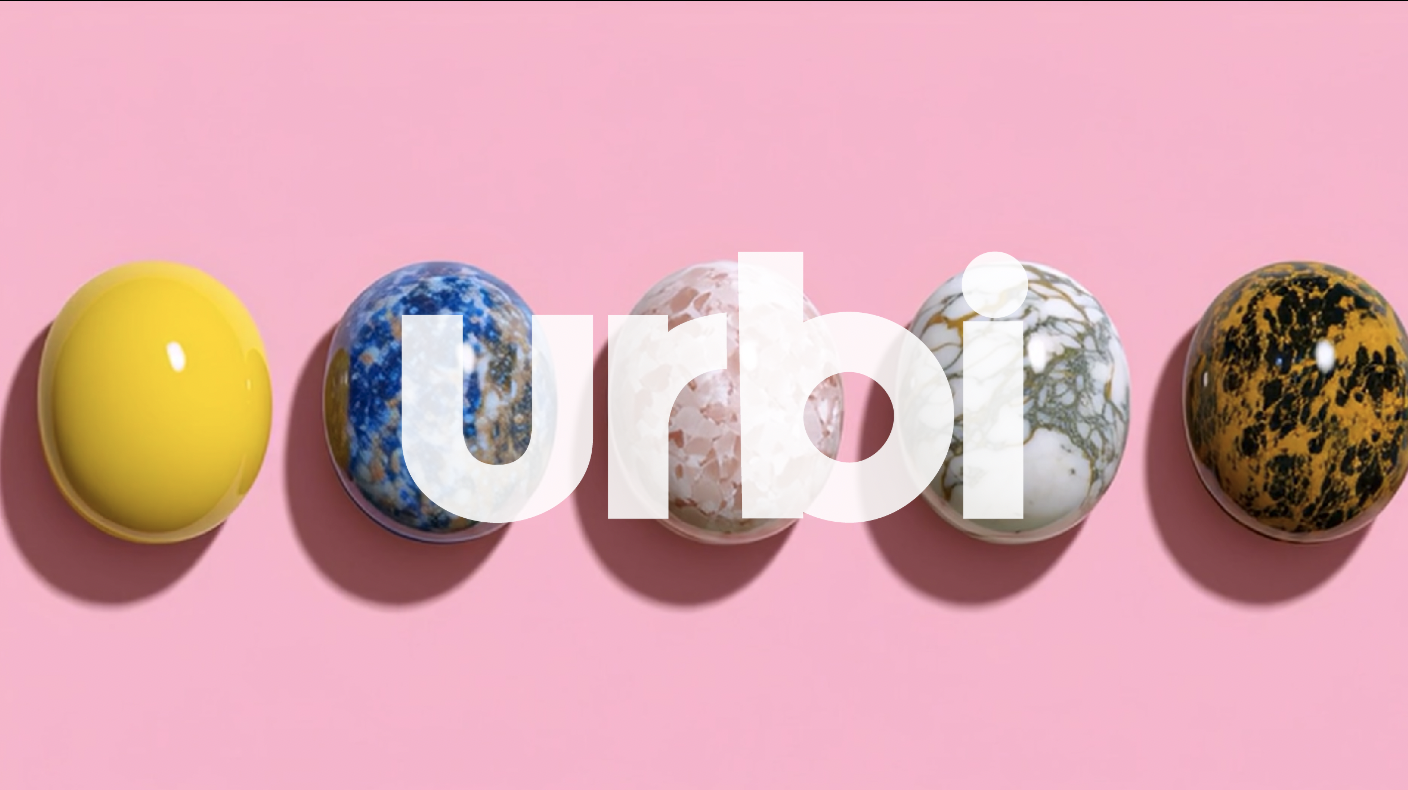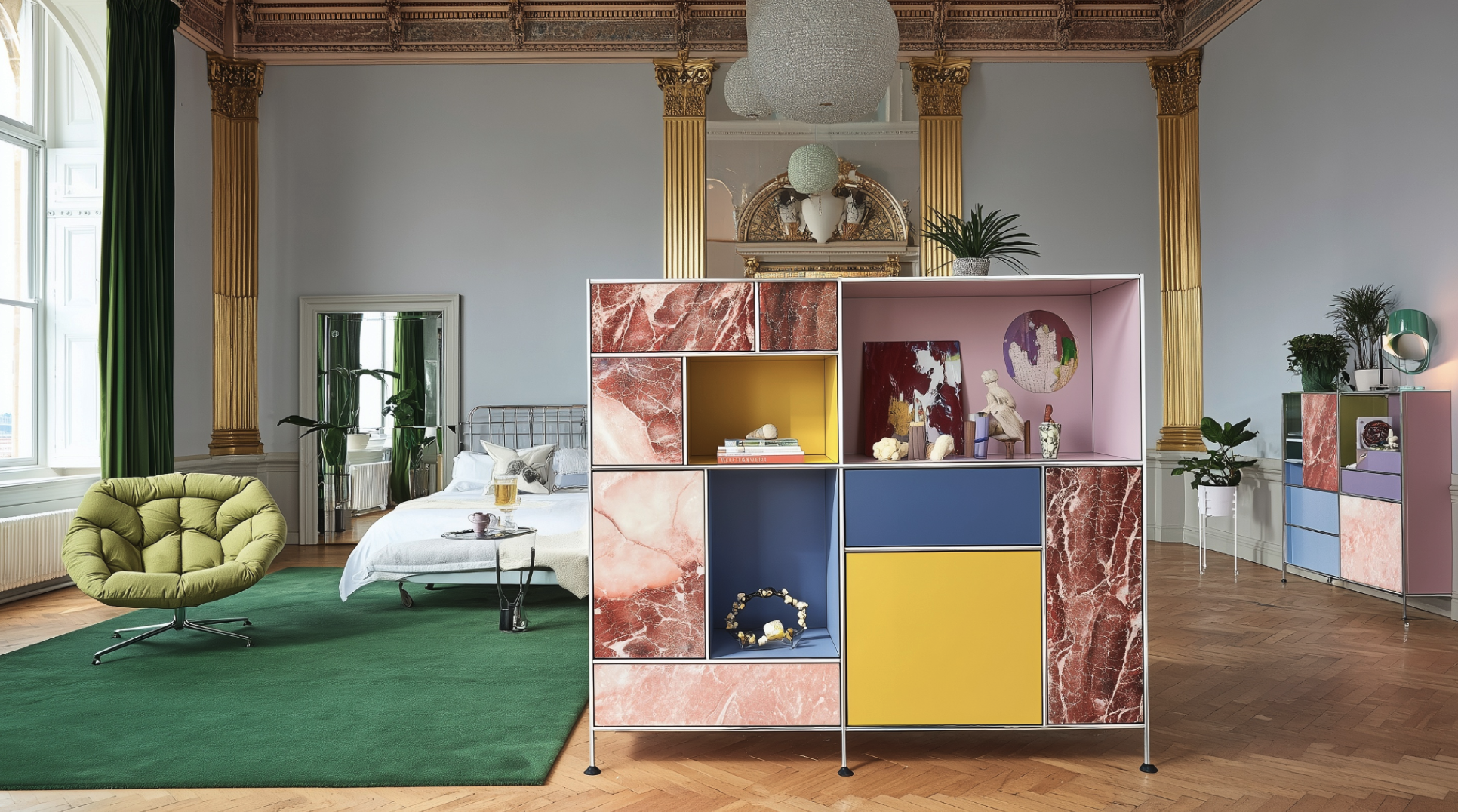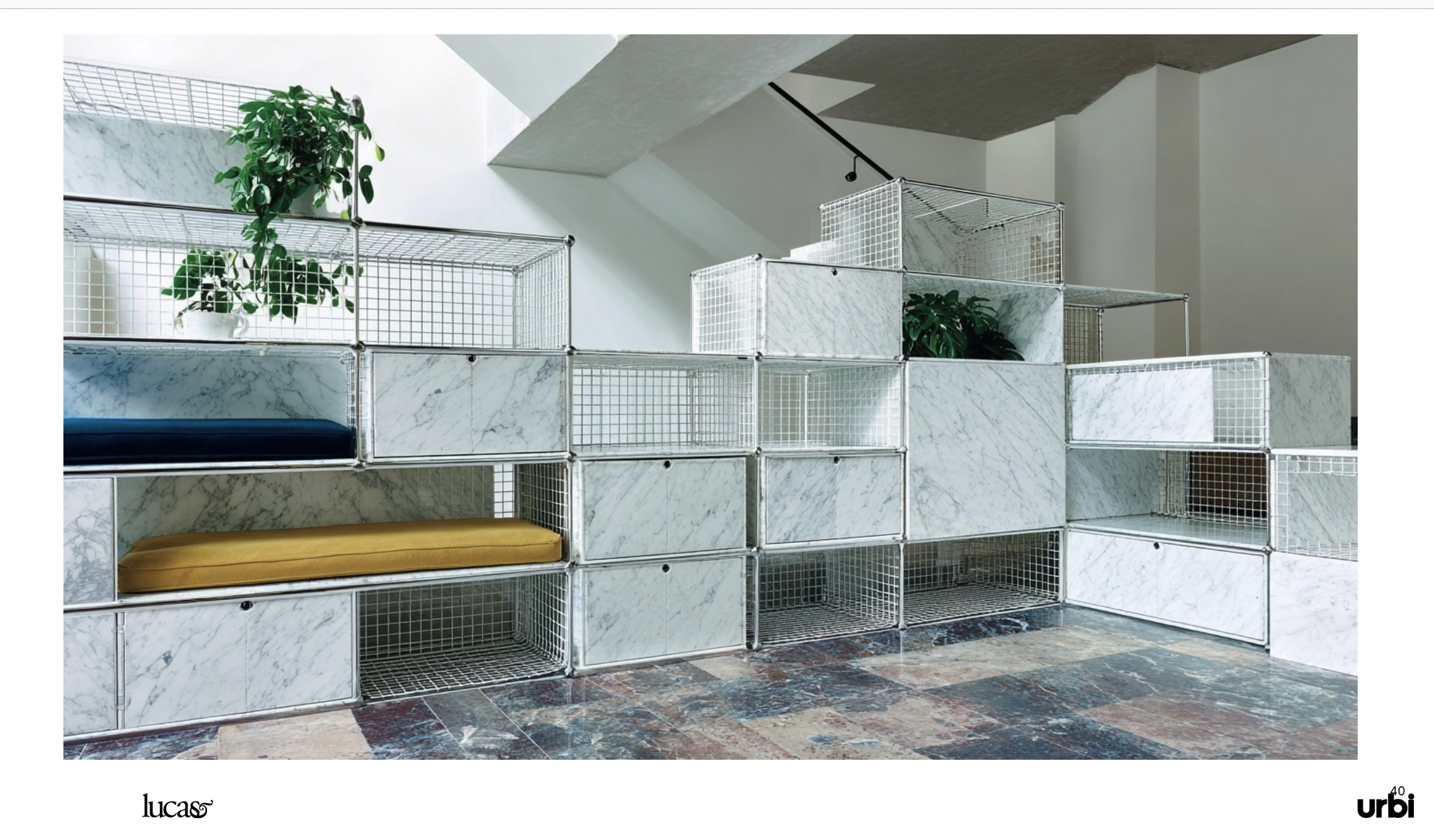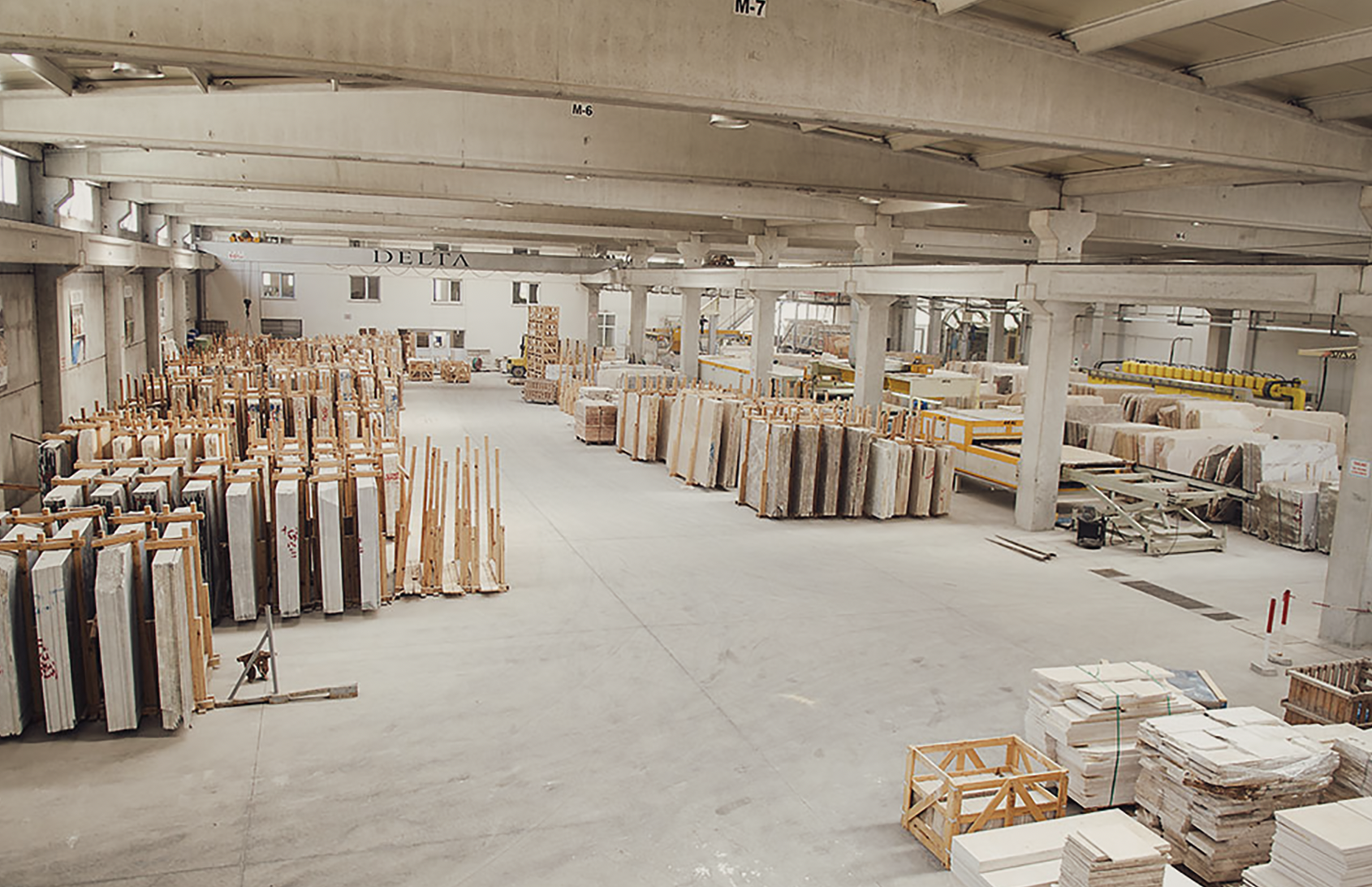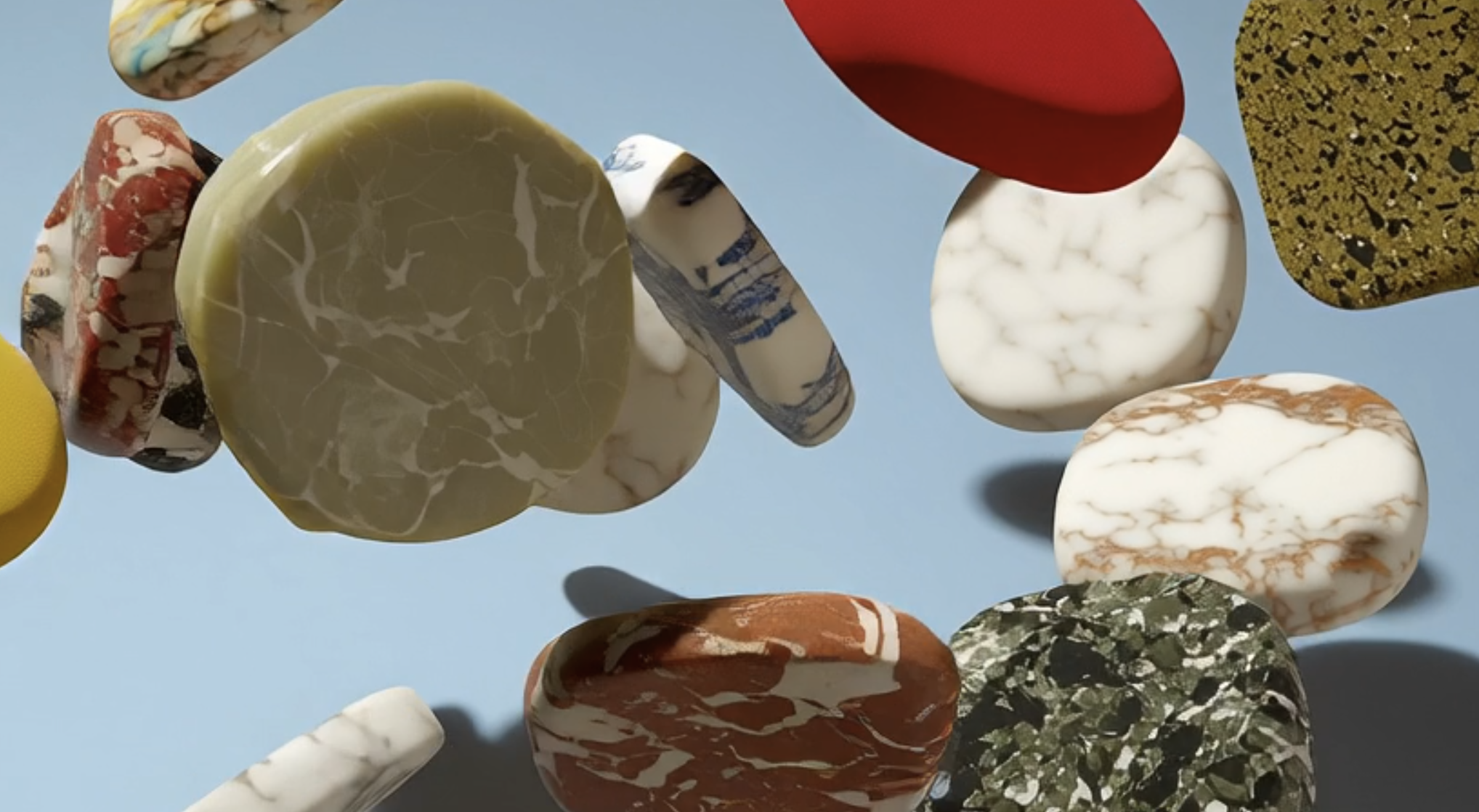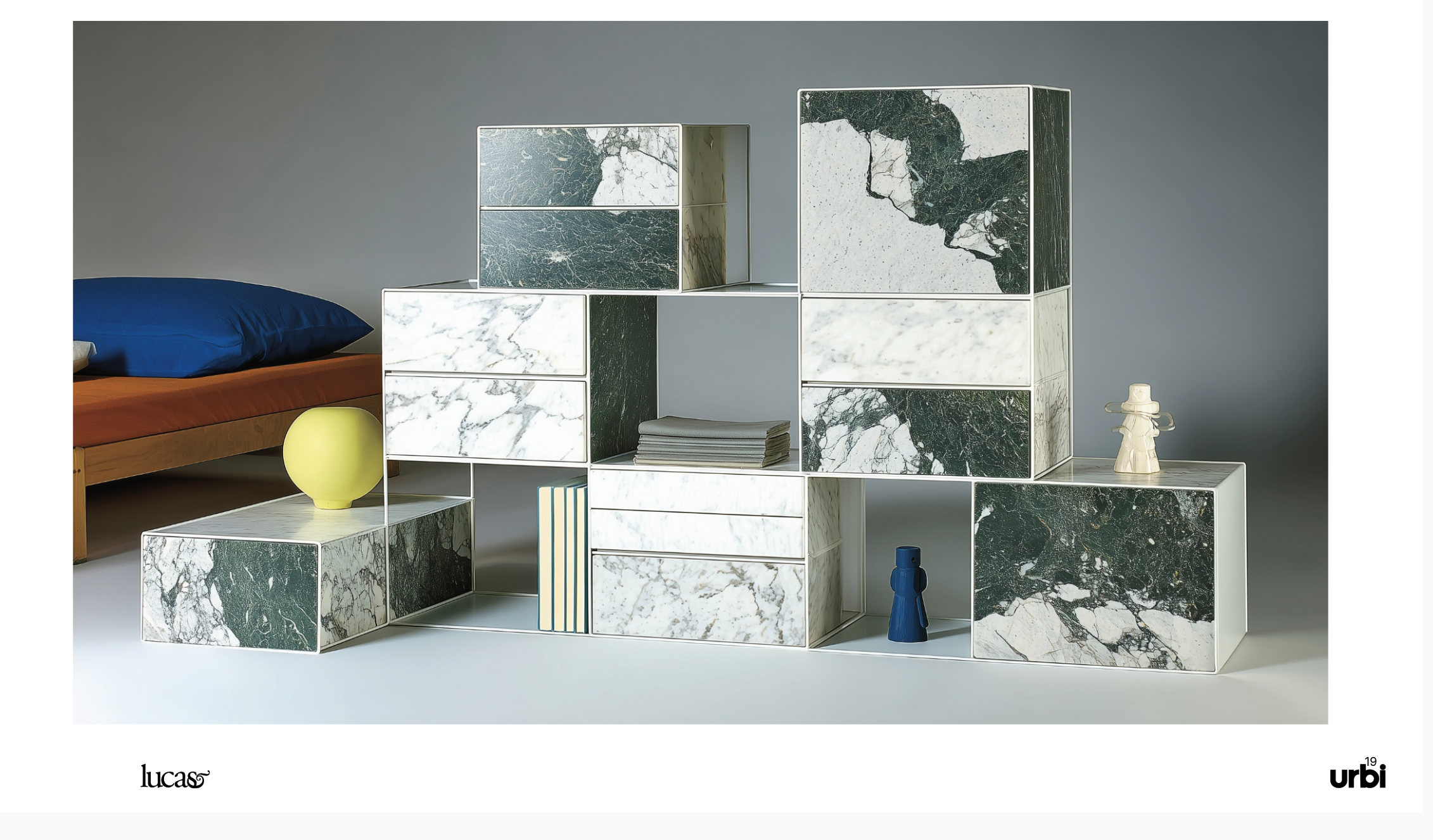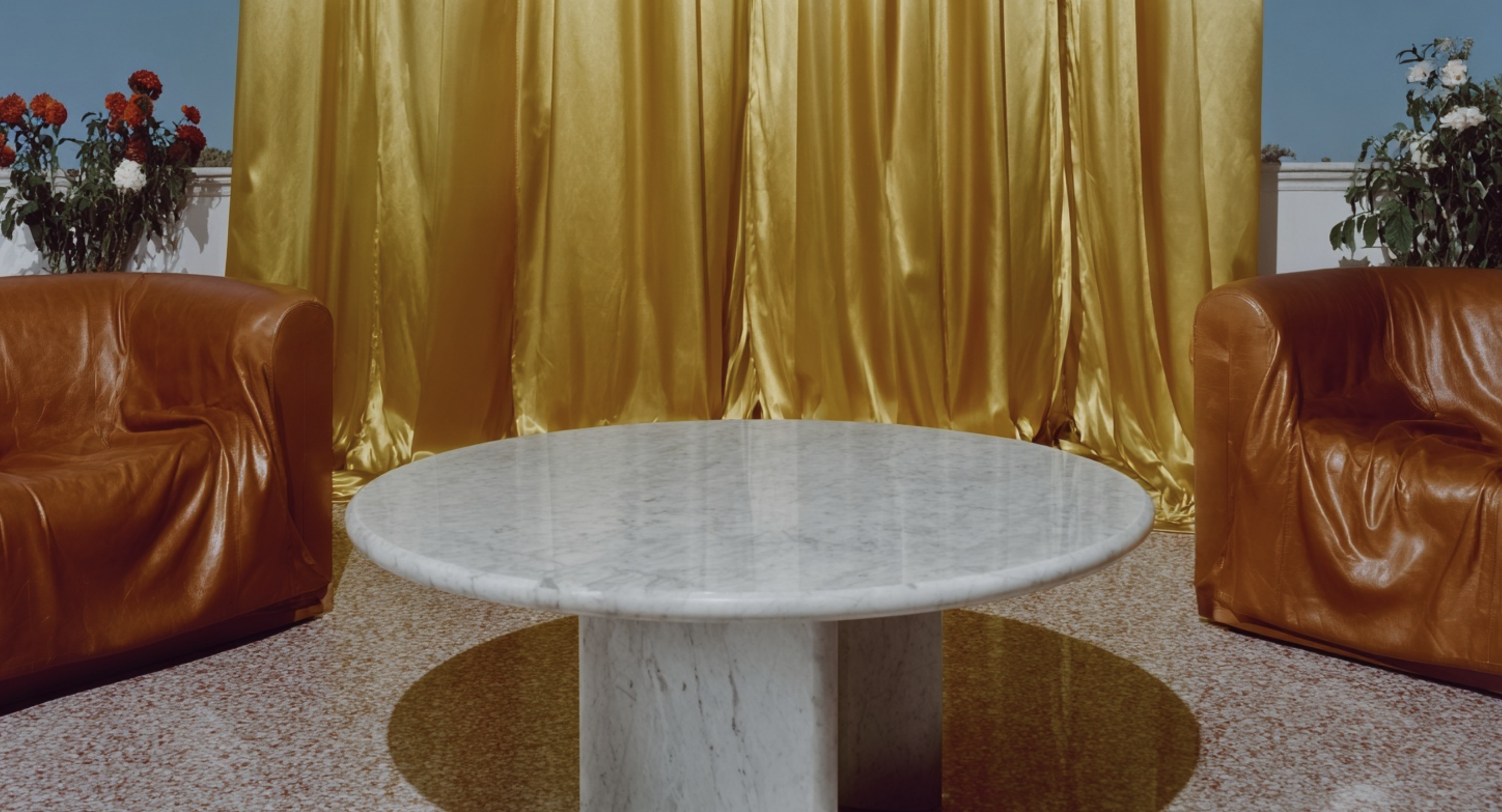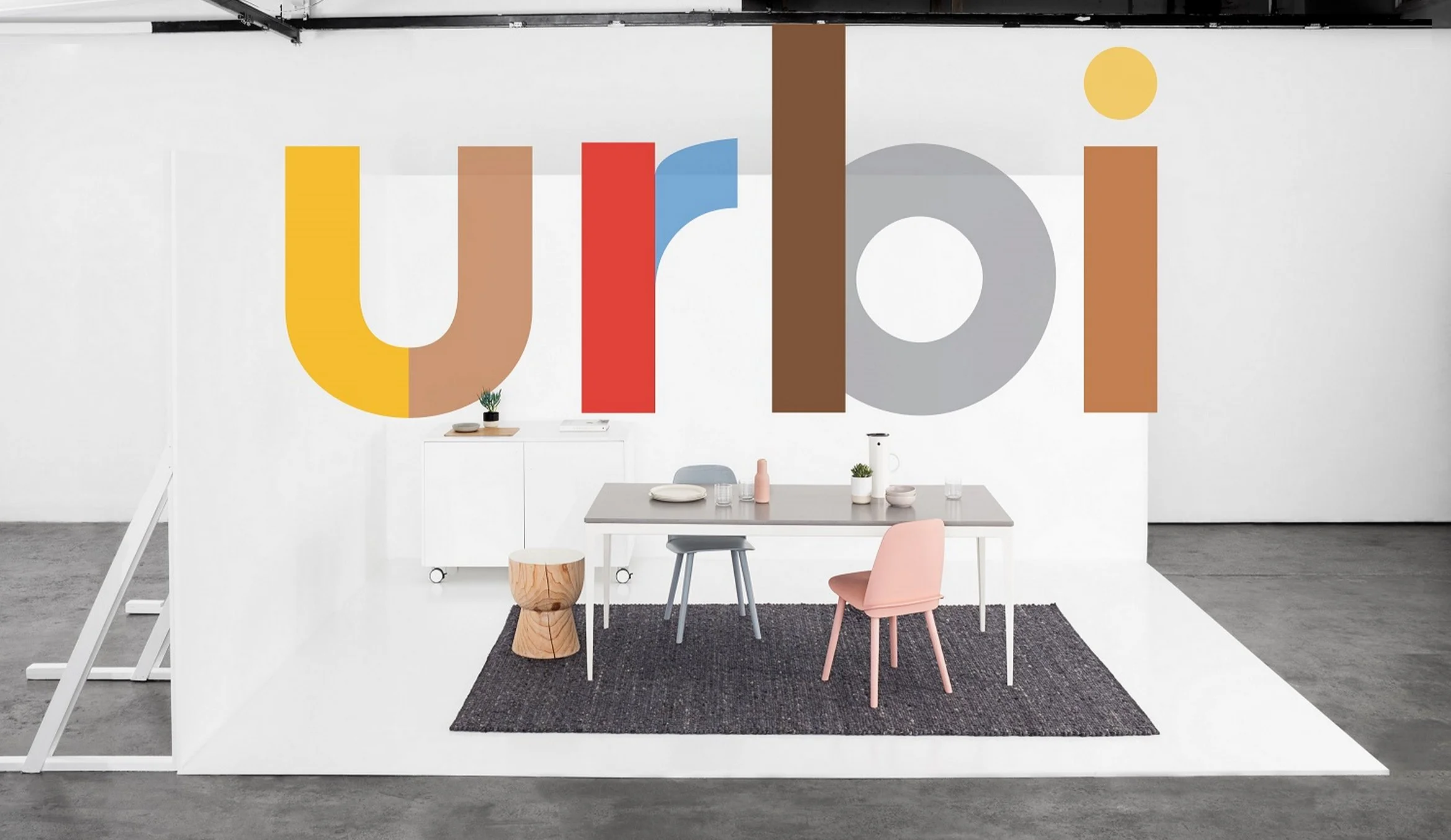Urbi – Revolutionizing Designer Collections with AI
Influencing Australian Architectural Spaces through a Relevant Brand, Bespoke Marble and AI Innovation
Ur
The traditional market for high-quality, custom furniture and design elements faced significant challenges, including inefficiency, lengthy agency processes, limited customization options, slow delivery times, and the added expense of middlemen..
Back ground
There was also a notable lack of appreciation for contemporary applications of stone materials. This presented a clear opportunity for a new brand to disrupt the sector by offering custom, premium materials in a more efficient, accessible, and innovative way Lucas, a brand design agency with 25 years of international project experience and specialist AI capabilities, stepped in to address this market gap. Lucas is known for its "proven" model and being "years ahead of the market" in its approach, aiming to "direct and deliver big, fresh ideas and high quality creative assets to ambitious export manufacturers & marketers". Their expertise in building "sector challenger brands" made them an ideal partner for Urbi.
Steps
Lucas proposed a disruptive model for Urbi focused on customization, efficiency, and direct engagement, leveraging their deep market experience and specialist AI capabilities. The core of this strategy involved strategic use of AI for product visualization, enabling Urbi to launch extensive designer collections without needing to hold physical stock or manufacture products upfront.
AI-Powered Visualization & Pre-Manufacture Sales: Urbi empowers customers to design their ideal furniture pieces online within minutes using AI visualization. This technology is crucial for securing initial investment and sales by showcasing full collections before manufacturing begins, effectively eliminating the need for costly physical inventory and showrooms. This "asset-light" approach significantly reduces capital expenditure and accelerates sales cycles. L
Key steps in this implementation included:
Modular Design System: Lucas implemented a modular design system for Urbi to allow for extensive product customization and future growth into new materials and categories, safeguarding Urbi's offerings with high-barrier-to-entry materials.
Diverse Product Portfolio Development: AI visualization facilitated the rapid development of a diverse product portfolio. This included starting with low-cost accessories for initial brand positioning and expanding into custom furniture (e.g., tables, chairs, bathtubs), home lighting, and acoustic panels made from various materials like marble, synthetic, recycled composites, and fabrics. Images of home accessories like knobs and bowls ( from Urbi EY 08a and from URBI ideas), acoustic panels ( from Urbi EY 08a and from URBI ideas), lighting ( from URBI ideas), and custom furniture ( from URBI ideas) demonstrate this diversity.
Architect-Designed & Stonemason-Crafted Concepts: Products were positioned as architect-designed and stonemason-crafted, leveraging premium material partners like Caesarstone®. AI allowed for the creation of sophisticated concepts, transforming challenges associated with custom stone and marble into core strengths and points of difference.
Direct-to-Consumer Online Model: Urbi operates 100% online, eliminating costly middlemen and allowing for most items to be custom-ordered with minimal stock held. This provided a highly flexible and cost-effective solution for clients.
Solution
The AI-powered, asset-light model conceived by Lucas has successfully positioned Urbi as a sector challenger brand. The system is now being considered by for some of Australia’s largest commercial projects.
Lucas suggested with a disruptive model centered on customization, efficiency, and direct engagement, leveraging Lucas's deep market experience and specialist AI capabilities.
Solution
Urbi, powered by Lucas's innovative approach and AI capabilities, is redefining the custom stone and furniture market by offering a highly flexible, direct, and cost-effective solution for both residential and commercial clients. Its focus on bespoke design, premium materials, and efficient online processes positions it as a sector challenger brand.
Lucas leveraged its specialist AI capabilities to enable Urbi to launch a comprehensive, high-end designer collection of stone and furniture pieces through advanced visualization and modular design, selling concepts and securing investments before physical production. This strategy created an asset-light, online-first business that disrupts the traditional market by offering customization, efficiency, and direct engagement without the typical overheads of physical product development and inventory
Results

